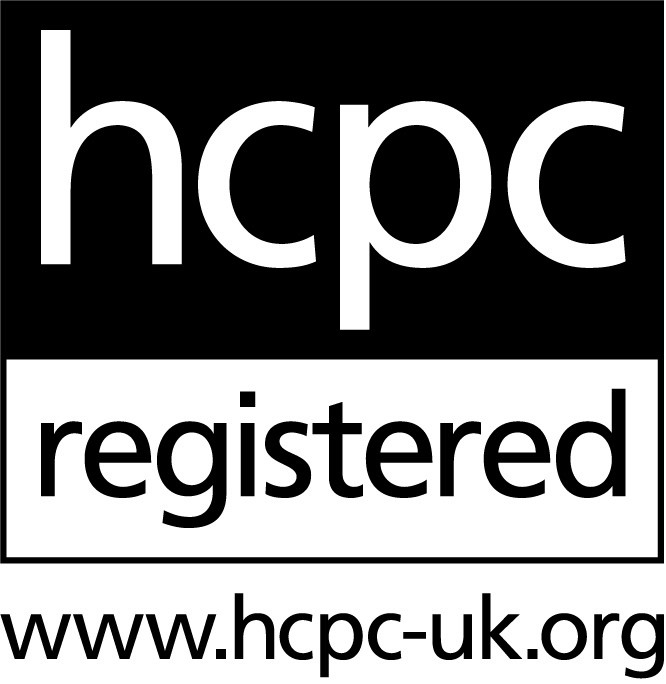Dr Vicky Eames – Clinical Psychology Service in Cornwall and Online

Since qualifying as a clinical psychologist in 1998 I have gained extensive experience across a range of NHS settings within both adult and child and adolescent specialisms. My career started with South London & Maudsley NHS Trust in London, following which I worked for many years in the North-West, including as Consultant Clinical Psychologist for Cheshire & Wirral Partnership NHS Trust. In 2016 I started my own clinical practice which is now based in Cornwall as well as Online.

My clinical psychology training and experience enables me to draw upon a range of psychological therapies and frameworks for understanding people’s concerns and tailoring interventions to suit their requirements. Since qualifying I have undertaken additional training in Psychodynamic Psychotherapy, Systemic Psychotherapy, Narrative Therapy, Acceptance & Commitment Therapy and Eye Movement Desensitisation and Reprocessing (EMDR). I have published research in the field of attachment, and I am an accredited EMDR Practitioner, specialising in working with attachment and trauma.
Trauma, attachment and loss
“The aim is a journey of discovery that can include re-connecting with important people, values, hopes and dreams, enabling you to move forward in your life with renewed vitality and richness of experience.”
Many of us will go through an experience which is threatening, scary, overwhelming, or out of our control. These may be accidents, being a victim of physical or sexual violence, being in a life-threatening situation such as a war or natural disaster, or traumatic experiences as part of illness or childbirth. Survivors of trauma might feel shocked, scared, guilty, ashamed, angry, or vulnerable. With time most people get over their experiences without needing professional help. However, in a significant proportion of people, the effects of trauma can last for much longer. Trauma tends to be harder to recover from if it is repeated, or if it happens in childhood.
Attachment or relational trauma occurs in the context of a relationship and involves something that happened, or did not happen that has caused harm to a child’s developing sense of self. This form of trauma can be subtle and may not have been acknowledged or recognised. For example, a caregiver might persistently, insufficiently, attend to a child’s emotional needs, perhaps because their own needs were not attended to in their own childhood so they may lack awareness or skills. The caregiver might persistently provide inconsistent attunement; sometimes noticing what the child is feeling, other times not noticing, perhaps due to being frequently overwhelmed or distracted by their own experience. Relational trauma can arise from emotional, physical or sexual abuse committed by someone the child had trusted. It can also extend beyond caregiver relationships. For example, a child may have overheard repeated arguments between her parents and felt somehow responsible or witnessed a sibling being hit. The child may have been bullied by a sibling, left out of a friendship group or shamed by a teacher. Such experiences can be internalised and the emotions that were experienced in the past can be triggered by interactions which remind them of that event later in life.
My approach to working with trauma involves firstly identifying and naming negative internalised stories or beliefs about ourselves and others that were established when the trauma happened or were part of the context of the trauma. Some co-detective work is usually required to connect these stories across time to the formative historical experiences underlying them. Throughout this process I appreciate that you are the expert in relation to your own life and believe you have the knowledge, skills and resources needed to respond and heal. My aim is to help you to connect with the preferred beliefs, intentions and values that have developed through all the good experiences you have had but that may have been overshadowed by the traumatic story.
EMDR – Eye Movement Desensitisation and Re-processing
“I frequently employ EMDR within my therapeutic work because I have found it to be a very effective and respectful way of reducing the experience of distress.”

Our minds have developed the ability to heal when something unexpected or distressing occurs in our day to day lives. We may feel better after talking to a friend or loved one as this can enable us to make sense of our experience into a story with a beginning, middle and an end. When we sleep on it our brain further sorts the distressing information and we wake up with a little more perspective as the memory of the event is processed and stored in language form. However, when something out of the ordinary occurs and we are shaken by an overwhelming event like a road traffic accident, or by being repeatedly subjected to distress as in childhood neglect or domestic abuse, our mind can become overloaded.
This can result in the images, body sensations and emotions connected to disturbing experiences remaining frozen in our minds in a raw form. These raw memory fragments can then be triggered when we experience events that remind us of the original incident. Often the details of the memory itself are long forgotten, but the painful feelings are frequently triggered in the present. EMDR aims to help the mind to create connections between memory networks, processing the raw memory into a story form.
EMDR practitioners believe that the use of eye movements or tapping while remembering these connections facilitates the processing of distressing memories by stimulating both sides of the brain. It is also found that doing this while continually re-visiting the sensations connected to the memory with the support of a therapist gradually helps our mind to learn that the event is in the past and no longer a threat.
There is now a large body of evidence that EMDR is highly effective in helping reduce the detrimental effects of trauma, anxiety, depression and phobias (see the EMDR Association UK website for more information).
To be safe and effective EMDR should be carried out according to a specialised protocol by a practitioner with a core clinical training as well as an accredited training in EMDR. The facilitation provided by the EMDR practitioner enables the mind to activate its own natural healing process.
Narrative Therapy
“Working from a Narrative Therapy perspective means that I will seek to be respectful of the knowledge, skills, experience and expertise that you hold in relation to your life.”

My work is underpinned by the principles of Narrative Therapy, an approach to therapeutic work that takes a non-judgemental stance, viewing problems as separate from people and understanding that the stories people tell about their experience shape their lives, histories and futures.
Narrative Therapy assumes that we have many stories about our identies developing simultaneously. Aiming to assist people to reduce the influence of problem stories and increase the influence of preferred stories, narrative therapists pay attention to the history of skills, beliefs, values and commitments, bringing to the fore the resources and knowledge of individuals, families and communities.
See the Dulwich Centre website for more information.
Cognitive Behaviour Therapy (CBT)
“I often utilise CBT when people are feeling overwhelmed as it can be useful to break problems down into their separate parts and approach them in a step-by-step way.”

Cognitive Behaviour Therapy (CBT) focuses on the ways in which thoughts, feelings, physical sensations and actions are interconnected. The therapy involves identifying how negative thoughts and feelings can trap us in a vicious cycle and practicing skills that can change these negative patterns to improve the way we feel. In addition to depression or anxiety, CBT can be beneficial with specific problems, e.g. OCD, panic and phobias. An important part of the approach is the expectation that people will practise making gradual changes between sessions, as this enables the development of skills that can be applied within day-to-day life. This practising between sessions is essential for CBT to be effective so it is important to bear this in mind when embarking on this particular therapy.
Over recent years new therapies have emerged from within or related to the field of CBT that have been called ‘third wave’ CBT. These include approaches such as Acceptance & Commitment Therapy (ACT), Compassion Focused Therapy (CFT) and Mindfulness Based Stress Reduction.
These approaches prioritise the promotion of psychological and behavioural processes associated with health and well-being over the elimination of psychological and emotional symptoms, although a reduction in symptoms is often a ‘side-benefit’ of more holistic change.
Therapy within these third wave approaches focuses more upon our personal values and observation of the way we relate to our thoughts and feelings, rather than on the content and meaning of negative thoughts and internal experiences. I find these interventions can be particularly useful where issues around stress and life-balance are a focus. They can also be used alongside more traditional cognitive behavioural interventions such as exposure therapy (e.g., systematic desensitization) and behavioural activation.
Systemic psychotherapy
“My systemic training and perspective means that, even if you are consulting me as an individual, as well as focusing on your internal experience, I will also hold in mind your experience within your family, culture and social context”

The principles of Systemic Psychotherapy also underpin my work, whether this is with families, groups or individuals.
Systemic therapy focuses on the interactions and relationships between a group of people, rather than solely on an individual’s thoughts and feelings.
It can help any group or system where people have a relationship or work together, as well as individuals who wish to explore their position within families, groups and relationships. As an exploratory approach it helps to uncover the ways in which people are communicating and behaving within a system, based on beliefs about their respective roles. Providing a space to explore the key issues affecting the group can help people to develop new ways of responding and communicating, building stronger relationships.
Psychodynamic psychotherapy
“My training in psychodynamic psychotherapy enables me to provide a therapeutic environment that is safe and secure, where you can talk freely, openly and honestly, without being judged.”

Psychodynamic psychotherapy helps us to understand how our current feelings and behaviour are shaped by our past experiences.
It focuses on the psychological roots of emotional suffering, helping us to make sense of the painful and difficult patterns that are keeping us stuck, with the aim of creating long-lasting change.
The relationship with the therapist is key both in terms of finding a safe space where you are able talk freely and openly about your feelings and history, as well as providing a window into the relationship dynamic that may have been internalised from your early experiences.
Psychodynamic psychotherapy can help with many different problems, such as anxiety and depression, which can be related to early attachment wounds, experiences of inconsistent care, rejection, abuse or loss.
Location

Consulting Room
Richmond House
37 Edward Stree
Truro
TR1 3AJ

We are registered practitioner psychologists with the Health Professionals Council.
Check the register

Dr Vicky Eames is a registered practitioner with the EMDR Association UK.
Check the register

We are Chartered Psychologists with the British Psychological Society.
Check the register

